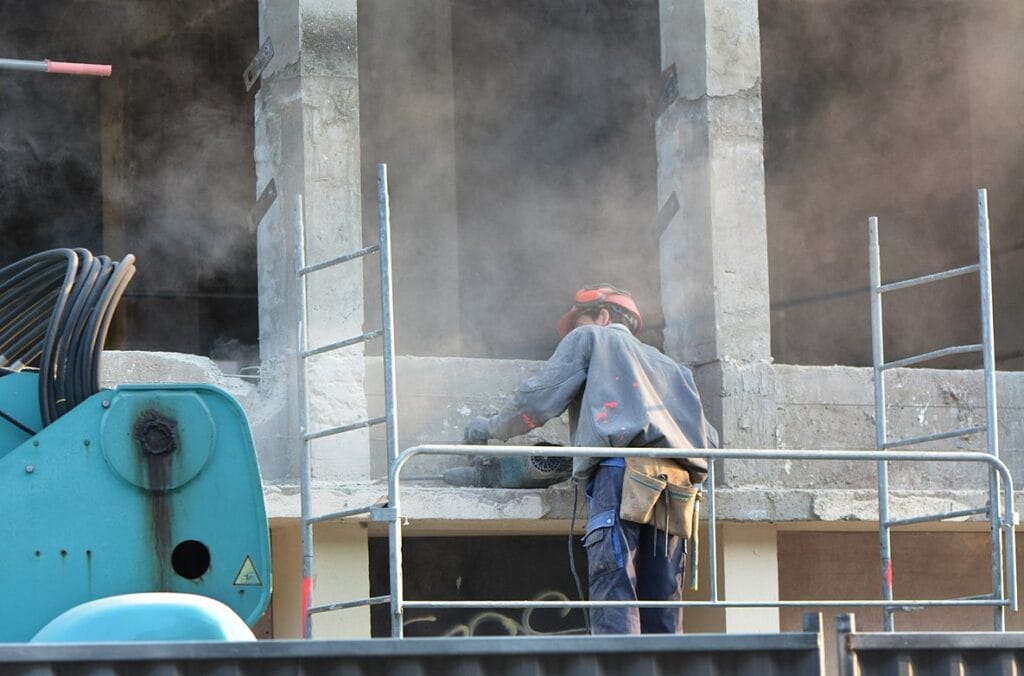“Mumbai’s air feels like inhaling smoke like a passive smoker, you don’t want to but you don’t really have a choice,” says Reena D’mello a resident from Malad. Despite her love for jogging, she has refrained from pursuing it for the past two years due to the rising air pollution caused by the construction projects in her neighbourhood. She fears that venturing outside and breathing in the heavily polluted air during her workouts could jeopardise her health. “I prefer exercising at home now,” she says.
Delhi typically gets the attention for its hazardous air pollution levels. However, Mumbai, despite its coastline and sea breeze, has surpassed Delhi in terms of air pollution levels, on multiple occasions, including this month.
Mumbai city and its suburbs are facing a health crisis due to rising air pollution primarily due to unregulated and extensive construction activities, aggravated by the insufficient greenery within the city.
Municipal authorities have issued notices to construction companies and have introduced measures like fog machines, the efficacy of which is yet to be determined.
Last week, a group of citizens initiated a Public Interest Litigation (PIL) in the Bombay High Court. They have sought directives from the court to compel the authorities to enforce more stringent measures to tackle rising air pollution.
Mumbai’s rising air pollution
Less than two weeks ago, on October 18, Vile Parle, a western suburb close to the airport, experienced ‘severe’ air pollution, as the Air Quality Index (AQI) surged beyond 400, reaching 411.
On October 16, Andheri, a bustling, crowded suburb, reported an AQI of 307, which deteriorated to 347 the following day, categorising the air quality as ‘very poor.’ Vehicular traffic around Andheri has been worsening since the closure of Gokhale Bridge. Similarly, on October 17, Mazgaon also witnessed ‘very poor’ air quality with an AQI of 307.
According to the AQI monitoring chart, an AQI between 0 and 50 is termed ‘good’, between 51 and 100 ‘satisfactory’, 101 and 200 ‘moderate’, 201 and 300 ‘poor’, 301 and 400 ‘very poor’, and an AQI beyond 400 AQI is ‘severe’.

Gufran Beig, a senior scientist and the project director at SAFAR (System of Air Quality and Weather Forecast and Research), explained, “When AQI readings fall within the range of 200 to 300, it primarily affects vulnerable groups such as senior citizens, children, and individuals with underlying health conditions. Those in good health may not experience significant impacts. However, when the AQI readings surpass 300 or 400, a broader segment of the population begins to be affected. As the readings continue to rise, the number of affected individuals also increases.”
Read more: Mumbai’s AQI worsens every winter, who is responsible?
What does the PIL say?
The Public Interest Litigation (PIL) aims to address the problem of severe air pollution in Mumbai.
The main reason for the air pollution is attributed to ongoing construction activities, vehicular pollution and lack of green cover. The PIL underlines the surge in respiratory ailments among people and urges the judicial system to intervene.
It refers to numerous news articles to underscore the escalating fear surrounding air pollution and criticises the municipal authorities for their perceived negligence in addressing the issue.
“The lack of appropriate and quality Green Cover in the city is a serious concern and needs to be immediately addressed as it is quite likely that in view of growing population and traffic and reckless construction activity, this may lead to a life threatening situation for residents of Mumbai City,” (sic) states the petition.
The PIL also calls for an investigation into the operations of the civic gardens and trees department and the extensive tree transplantation efforts as part of the strategy to combat air pollution.
“We are calling the campaign ‘Dream Mumbai a Forest’ with the goal of making Mumbai’s city areas more beautiful and green by planting more trees and plants to create attractive, useful, and green spaces for the community,” said advocate Prashant Pandey, who is representing the petitioners.
Will govt measures suffice?
Deepak Kesarkar, guardian minister for Mumbai said that the BMC has issued notices to 6,000 construction sites, instructing them to install fogging machines and sprinklers.
“Within one or two months, the city will start experiencing better air quality,” he stated.

In response to mounting pressure, the BMC has initiated the issuance of stop-work notices to builders, who are not adhering to its recently established anti-air pollution regulations. Several construction sites, including one in Mulund and another in Santacruz, have received stop-work notices.
The minister, also mentioned that the BMC is in the process of implementing waste segregation, which involves removing pollutants from garbage, at its Deonar and Kanjurmarg landfills.
The BMC’s new air pollution mitigation guidelines also state, “Open burning is strictly prohibited within the BMC’s geographical area, including garbage dumping grounds and potential locations for trash burning.”
Fog machine vehicles, which are expected to bring down pollution levels at local spots, have also been moving around the city.
“The fog machines are only a temporary solution, they are not going to help in the long term plan for decreasing Mumbai’s pollution,” advocate Prashant pointed out.
Winter woes
The battle against air pollution in Mumbai remains a pressing concern as the city grapples with increasing health risks and environmental challenges.
As winter advances and Diwali comes closer, the pollution levels are expected to worsen. With worsening pollution, the citizens are expecting a surge in illnesses related to air pollution.
Medical advisory by SAFAR
- Wear a mask while heading outdoors.
- Consider reducing prolonged or heavy exertion.
- Take it easy if symptoms such as coughing or shortness of breath occur.
- In case symptoms get severe, approach nearest medical center.